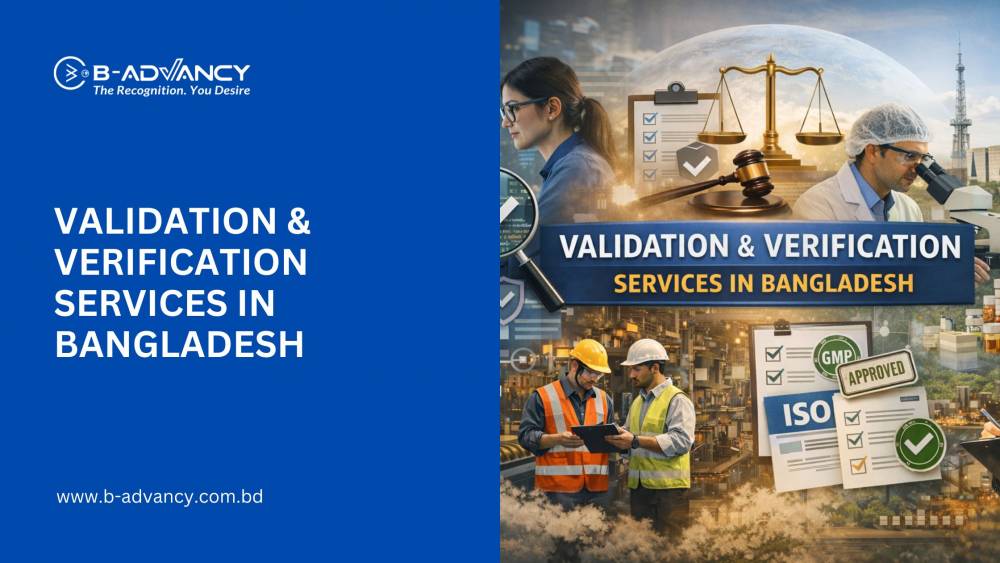As the automotive industry in Bangladesh continues to grow, with increasing demand for both vehicles and automotive components, the need for maintaining high standards of quality, safety, and efficiency becomes crucial. ISO certification provides a globally recognized benchmark that helps automotive companies meet these standards, ensuring that they remain competitive in both local and international markets. In this blog, we will explore the significance of ISO certification for the automotive industry in Bangladesh, the specific ISO standards that are applicable, the benefits they offer, and how you can begin your certification journey with B-ADVANCY Certification Limited.
What is ISO Certification and Why is it Important for the Automotive Industry?
ISO certification is an accreditation from the International Organization for Standardization (ISO) that signifies a company's compliance with one of its internationally recognized management system standards. For the automotive industry, ISO certification is vital in demonstrating a commitment to quality, safety, and operational efficiency—key factors that contribute to consumer trust and regulatory compliance.
In Bangladesh, the automotive sector includes vehicle manufacturing, parts production, and service providers, all of which benefit from adhering to ISO standards. These standards help companies ensure that their products meet consistent quality requirements, minimize defects, and improve overall efficiency. Additionally, ISO certification can open up opportunities for exporting automotive products by aligning with international standards, which is increasingly important in the global automotive market.
Key ISO Standards for the Automotive Industry
Several ISO standards are particularly relevant for the automotive industry in Bangladesh:
ISO 9001:2015 - Quality Management Systems
ISO 9001:2015 is the foundation of a quality management system (QMS) and is essential for automotive companies. This standard helps organizations develop processes that ensure consistent product quality, improve customer satisfaction, and enhance operational efficiency.
IATF 16949:2016 - Automotive Quality Management Systems
Specifically tailored for the automotive industry, IATF 16949:2016 builds on ISO 9001, with additional requirements specific to automotive manufacturing. It focuses on defect prevention, waste reduction, and continuous improvement in the supply chain.
ISO 14001:2015 - Environmental Management Systems
The automotive industry can have a significant environmental impact, from emissions to waste management. ISO 14001:2015 helps companies manage their environmental responsibilities systematically, promoting sustainability and reducing their ecological footprint.
ISO 45001:2018 - Occupational Health and Safety Management Systems
ISO 45001:2018 is crucial for ensuring a safe working environment in the automotive industry, where workers are often exposed to physical risks. This standard provides a framework for identifying and mitigating workplace hazards.
ISO 50001:2018 - Energy Management Systems
Energy consumption is a major concern in the automotive industry, particularly in manufacturing processes. ISO 50001:2018 helps companies optimize their energy use, leading to cost savings and a reduced carbon footprint.
Benefits of ISO Certification for the Automotive Industry in Bangladesh
Enhanced Product Quality and Safety
ISO certification helps automotive companies ensure that their products meet high standards of quality and safety. This leads to better customer satisfaction, fewer recalls, and stronger brand reputation.
Operational Efficiency and Cost Reduction
Implementing ISO standards allows companies to streamline their processes, reduce waste, and minimize errors. This not only improves efficiency but also results in significant cost savings.
Compliance with Regulatory Requirements
ISO standards provide a structured approach to meeting local and international regulatory requirements, which is critical in the automotive industry. Compliance helps avoid legal issues and ensures continuous operation.
Increased Market Competitiveness
ISO certification is an internationally recognized mark of quality that can give automotive companies a competitive edge. It helps attract new customers, partners, and investors, both locally and internationally.
Facilitation of International Trade
ISO certification aligns automotive companies with global standards, making it easier to enter and compete in international markets. This is particularly important for Bangladeshi companies looking to expand their export potential.
Steps to Achieve ISO Certification for Your Automotive Business
Achieving ISO certification involves several key steps:
Initial Assessment and Gap Analysis
Begin by evaluating your current processes against the requirements of the relevant ISO standard. Identify gaps and areas that need improvement to meet the certification criteria.
Develop and Implement a Management System
Design and implement a management system that complies with the chosen ISO standard. This may involve documenting processes, setting objectives, and training employees on new procedures.
Internal Audit and Management Review
Conduct internal audits to ensure your management system is effective and compliant. Regular management reviews are essential to address any issues and drive continuous improvement.
Select a Certification Body
Choose a reputable certification body, such as B-ADVANCY Certification Limited, to conduct an external audit. Prepare thoroughly for this audit to demonstrate compliance with the ISO standard.
Achieve Certification and Commit to Ongoing Improvement
After a successful audit, you will receive ISO certification. It’s important to maintain and improve your management system to retain certification and continue benefiting from it.
Challenges in Implementing ISO Standards
While ISO certification offers numerous advantages, implementing these standards can pose challenges, including:
Resistance to Change
Employees may resist changes to established processes, especially in long-standing automotive operations. Effective communication and training are crucial to help staff understand the benefits of ISO certification.
Cost and Resource Allocation
The costs associated with certification, including consulting, training, and auditing, can be significant. However, the long-term benefits of ISO certification, such as improved efficiency and marketability, often justify these initial expenses.
Documentation and Process Management
Maintaining comprehensive documentation can be time-consuming but is essential for successful certification. A well-organized documentation system is key to demonstrating compliance during audits.
B-ADVANCY Certification Limited can guide you through these challenges with expert support, making the certification process more manageable and efficient. To contact them: Email: bangladesh@b-advancy.com | Call: +8801612264559
Conclusion
ISO certification is more than just a credential for the automotive industry in Bangladesh; it is a strategic investment that can significantly enhance product quality, operational efficiency, and market competitiveness. By aligning your processes with internationally recognized standards, your business can achieve consistent product safety, improve customer satisfaction, and gain a competitive edge in both local and global markets. While the certification journey may present some challenges, the long-term benefits far outweigh the initial efforts.





































































































































































































